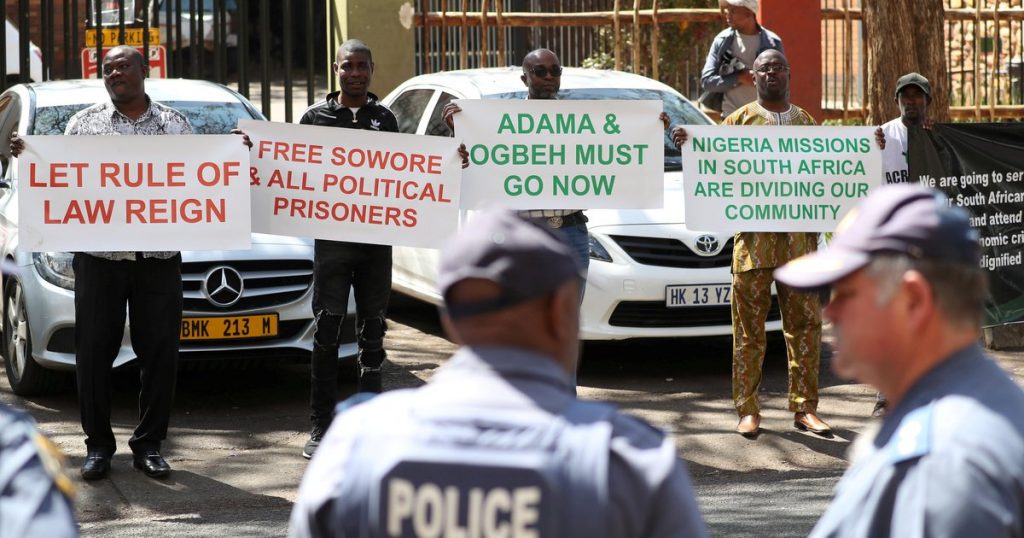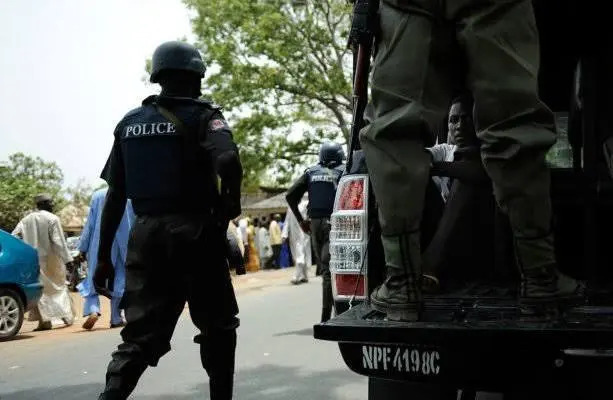Let us look at the meaning of unlawful detention by looking first at what lawful detention is.
Section 35 of the 1999 Constitution (as amended) states that every person shall be entitled to his liberty, and no person shall be deprived of such liberty unless:
- he has been found guilty of a criminal offense by a court;
- he has disobeyed the order of a court;
- to bring him to court by order or because he is suspected of having committed an offence or to prevent him from committing an offence;
- for education and welfare in the case of a person below 18 years;
- if he is a person suffering from infectious disease, drug/alcohol addiction, or of unsound mind to treat him or protect the community;
- to prevent the unlawful entry of a person into Nigeria or to effect his extradition or expulsion from Nigeria.
The above are the constitutionally permitted instances of when a person can be detained. So, any other detention apart from those listed above or recognized by law is, therefore, unlawful detention. But I want you to take note that the only power of detention given to the police is in paragraph (c) above where the Constitution states that a citizen can be detained if “he is suspected of having committed an offence or to prevent him from committing an offence.” Learn more about your fundamental human rights under the Nigerian constitution. We shall now generally discuss what constitutes unlawful detention in detail.

Unlawful Detention By Police
Is it possible to be unlawfully detained by the Police? The answer is YES! I know many people may be surprised by this answer but that is the truth.
Remember we said before that the Police have the right to detain you. But the detention becomes unlawful where you are not the offender and there was no basis for suspecting you of having committed the crime. Let us take, for example, arrest by proxy which is commonly perpetrated by the Police: Mr. A commits an offence and because you cannot find Mr. A, you then arrest and detain Mr. B who does not know anything about the crime but simply because Mr. B is a friend, brother, cousin or partner to Mr. A. This sort of detention is unlawful.
Or if the Police detain Mr. A and a court order says he should be released immediately, his continued detention from the date of that court order becomes unlawful.
Another instance of unlawful detention is through abuse of office by police officers. For instance, Mr. John’s vehicle hits the vehicle belonging to Mr. James in a traffic accident. And because Mr. James is a Commissioner of Police or senior police officer, he orders the indefinite detention of Mr. John and his vehicle, vowing never to release them until his vehicle is repaired. This is unlawful detention for which Mr. John is entitled to redress. The mere fact that Mr. James is a senior police officer does not empower him to investigate/handle or judge his case by himself. The case must follow the due process of being incidents at the Police Station in the area concerned, and assigned to an IPO who is supposed to be the impartial investigator. The law forbids a man to be the accuser, the prosecutor, the judge, and the executioner all at the same time. Even if the matter concerns the President or IGP, it must still follow due process, and the aggrieved party cannot be the judge of his case. Find out more about your rights against the police and in court in criminal matters.

Unlawful Detention By Military Bodies
It is common in the big cities to find Army, Naval, or Air Force personnel meddling in civil matters and detaining civilians in their cells. For example, Mr. John owes Mrs. Aminat some amount of money and he has failed/refused to pay. Mrs. Aminat, maybe because she is the wife/sister of an army officer then engages soldiers to arrest and detain Mr. John. This is wrong, illegal, and unconstitutional.
It is lawful for a member of the armed forces and even a civilian to arrest an offender suspected of committing a crime. But the lawful thing to do is to hand over such a suspect to the Police without any delay and without attempting to investigate the case themselves. It is the Police who are constitutionally empowered to handle and investigate criminal offences.
The only exception to this is where the offender is arrested and detained in connection with an offence related to the military, e.g., planning a military coup or engaging in war, etc. This is purely a military affair that would be dealt with under military regulations.
So, the military is not empowered to meddle in criminal offences even when they are personally involved. It doesn’t matter whether the complainant is a General in the Armed Forces. He cannot investigate the case himself. It is the job of the Police.

Unlawful Detention By Militia Bodies e.g., OPC, Bakassi, Vigilantes, etc.
This is another instance where unlawful and illegal detention occurs regularly in our society. For example, Mr. A is suspected of or commits an offence against Mr. B. Then Mr. B, because he is influential employs members of OPC to “arrest” and “detain” Mr. A either in their house, their meeting place, or so-called cells. This is wrong, unconstitutional and a criminal offence by Mr. B and his OPC men.
OPC, Egbesu, Bakassi, vigilantes, etc., are not bodies even recognized under the law not to talk of being allowed to detain citizens. So, anyone who claims to be a member of like organizations and by that carries out the detention of other citizens is himself a criminal.
I must recognize, though, that due to the security challenges all over the nation and the shortage of manpower from the Police, communities have formed themselves into vigilante groups to provide security for their communities. While such activities in themselves may not be illegal, going against the law will not be excusable. It is not permitted for any vigilante group to arrest, detain, try or punish anyone suspected of a crime. No vigilante group is permitted under the law to engage in the detention of any criminal. It is not even a justification that the police will compromise and release the suspect, or bungle the case. The law is that anyone suspected of committing a crime must be handed over to the Police within a reasonable time.
Unlawful Detention By Civilians
As indicated above, a civilian has the right to arrest a person suspected of having committed a crime. But he must hand him over to the Police without any delay. A citizen does not have the right to detain his fellow citizen under any circumstances. The only recognized exception is probably where the suspect is detained pending the arrival of the Police or he’s being taken to the police station. This must, however, be done within a reasonable time. Learn more about your civil rights against other people
So, be aware that any detention which is in any manner contrary to law or by any other person not authorized by law is unlawful. Unlawful detention by a civilian is also a criminal offence called unlawful imprisonment and deprivation of liberty. It is an offence that carries a 2-year jail term.